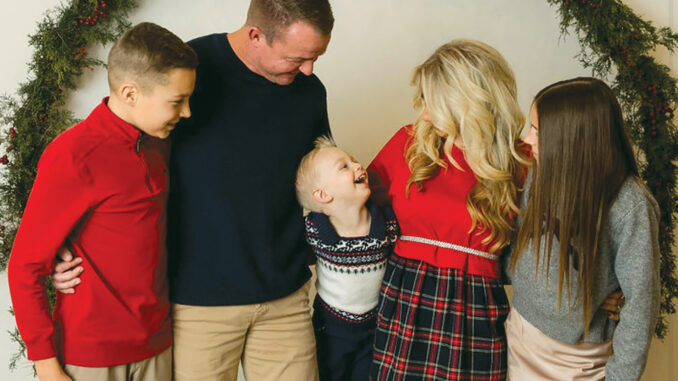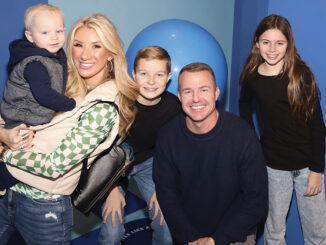
I say a lot of things repeatedly to my kids… things like “ask good questions” and “mind your manners” and “just be kind” and “I love you.” We are a household that overuses “I love you,” and I share that with confidence because I don’t think there is such a thing as saying “I love you” too much. I don’t tire hearing it often from my husband and kids, and hopefully they feel the same way.
Our little one is 2.5 years old and when he gets to feeling his big feelings, you can often see that emotion illustrated on his face. My husband will ask, “Are you mad?” when Haynes is obviously mad, or “Are you sad?” when he is apparently sad. The answer is obvious now to us at his current age, but as he grows bigger, his feelings are bound to be less apparent and more discoverable. Our big kids are at that age now where we don’t always know when or what they are feeling. They don’t have to share all those things with us if they don’t want to. What I’ve become more concerned about is how they think we feel about them.
A couple of years ago I started asking our big kids, “Do you feel loved?” after it occurred to me one day that they may know they are loved, but do they feel it? Lucky for me, they answer shyly with “Yes.” The question may seem a little funny and uncomfortable, but it opens the door to communication should they ever not feel loved. It also lets them know that I care about their feelings.
We participated in a love language study by Dr. Gary Chapman once as family and in that study, there is a questionnaire for children so that parents can better understand how a child feels most loved. To my surprise, I thought our daughter’s love language was one thing and after the study, I learned that it was something different. Knowing what her love language is helped me be a little more proactive in expressing/doing the things that confirmed my love for her.
I took a little deeper dive into Dr. Chapman’s study, taking notes from different platforms he spoke on, and I loved what he had to say on the FamilyLife Today® podcast: “The question is not, do you love your children? By nature, we love our children. The question is, do your children feel loved?” I had been asking myself the same question; do our kids feel loved by me? Do I show them in ways that they translate as love or something else?
It is vulnerable to share that there have been people in my life who I know that love me within their realm of loving because they’ve told me, but often they are the people that I don’t feel very loved by. And as I continue to grow in parenting and relationships, I want to be a person who loves and makes people feel loved. I want my kids to know and feel and believe that their dad and I love them, and that we share and show that love with our words and our actions. We care enough about them to know each one of them. We love them enough to show it in a way that helps themfeel it – even if that way is different than our own.
All three of our kids are different, and they are likely to all feel loved differently, so it’s a great quest as a parent to study each one of them and learn what makes a difference and what doesn’t. A child’s deepest emotional need is the need for love. Knowing that is the easy part, executing love in the ways that they need is the hard part, but the joy is having the privilege of getting to learn these three beautiful, bright children that I get to call mine.
-by Destini McPherson






